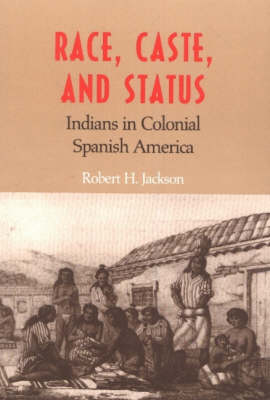How and with what effect were notions of race and status applied to indigenous peoples in colonial Spanish America? To answer that question, Jackson compares the legal and social distinctions created by Spanish officials to separate the colonizers from the colonized in northwestern Mexico, an area on the periphery of Spain's empire, and in Bolivia, a so-called core region with a large sedentary native population.In both regions Spanish elites imposed on native peoples a hierarchical social order based on skin color, language, dress, residence, and access to land. As fixed as these definitions may have seemed in parish registers, censuses, and tribute records, the actual circumstances of people's lives--whether Indian or mestizo--show that racial classifications were imprecise and subjective. While identity categories had definite importance, particularly for defining who made tribute payments, they were also mutable. Jackson shows that indigenous peoples routinely moved upward to take advantage of opportunities to improve their lives.
This book offers students the first new synthesis in over thirty years of what race meant in colonial Spanish America, and it raises important issues about caste, or how and why people knew their relative place in society.
"Provides an important corrective of our understanding of ethnicity and caste society in Latin America."--Erick D. Langer, Georgetown University
- ISBN10 0826321089
- ISBN13 9780826321084
- Publish Date 1 March 1999
- Publish Status Out of Print
- Out of Print 20 April 2021
- Publish Country US
- Imprint University of New Mexico Press
- Format Hardcover
- Pages 160
- Language English
